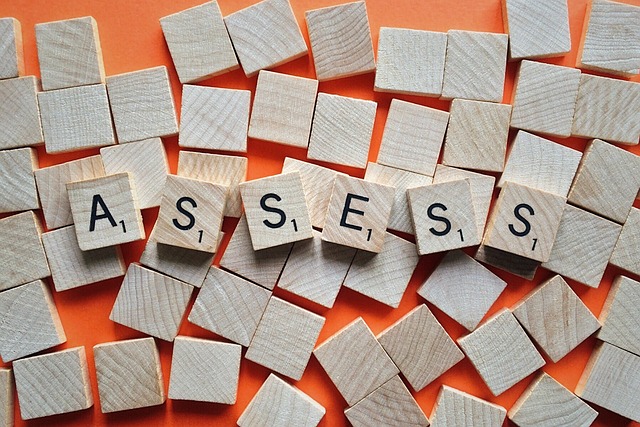We may earn money or products from the companies mentioned in this post. Also THIS IS NOT FINANCIAL ADVICE. THIS IS NOT INSURANCE ADVICE
The holidays are a time of joy, giving, and celebration—but they can also leave your wallet feeling drained. If you overspent on gifts, travel, or festivities, you’re not alone. Many people find themselves facing a “holiday spending hangover” in January, but the good news is, recovery is possible with a little planning and discipline.
In this blog post, we’ll share practical steps to bounce back from holiday overspending, rebuild your finances, and set yourself up for a stronger financial year ahead.
- 1. Assess the Damage
- 2. Stop the Bleeding
- 3. Prioritize Credit Card Payments
- 4. Create a Post-Holiday Budget
- 5. Build a Holiday Recovery Fund
- 6. Reflect on Your Spending Habits
- 7. Start Saving for Next Year
- 8. Celebrate Small Wins
- 9. Learn and Plan for the Future
1. Assess the Damage
The first step to recovery is understanding how much you overspent. Gather all your holiday-related receipts, credit card statements, and bank transactions to calculate:
- Total holiday spending.
- Amount paid in cash vs. credit.
- Remaining balances on any credit cards.

Pro Tip: Use What’s My Account Balance to quickly log and categorize your holiday expenses. Seeing everything in one place will help you face the reality of your finances and make a plan to move forward.
2. Stop the Bleeding
If you’re still in a spending mindset, it’s time to hit the brakes. Here’s how to cut back immediately:
- Pause Non-Essential Purchases: Avoid dining out, impulse buys, or unnecessary subscriptions in January.
- Return Unused Items: If you overbought or received duplicate gifts, return what you can for refunds or store credit.
- Reassess Gift Cards: Use holiday gift cards for essentials like groceries or household items to reduce out-of-pocket expenses.
By tightening your spending now, you’ll prevent further strain on your finances.
3. Prioritize Credit Card Payments
Holiday spending often leads to credit card debt, and interest can quickly add up. Create a repayment strategy to tackle it head-on:
- Pay More Than the Minimum: Aim to pay off as much as possible each month to avoid long-term interest.
- Focus on High-Interest Debt First: Use the debt avalanche method to prioritize cards with the highest interest rates.
- Consolidate Debt: Consider a balance transfer or personal loan if it lowers your overall interest rate.

Staying consistent with payments will help you reduce your debt faster and regain financial freedom.
4. Create a Post-Holiday Budget
A fresh budget can help you regain control of your finances. Adjust your January spending plan to reflect your priorities:
- List Fixed Expenses: Include rent, utilities, and other non-negotiable costs.
- Set Limits for Discretionary Spending: Allocate minimal amounts for categories like entertainment and dining out.
- Boost Savings Goals: Redirect leftover holiday spending money toward rebuilding your savings.
Pro Tip: Use What’s My Account Balance to set and track spending limits for each category. Staying organized will help you stick to your budget.
5. Build a Holiday Recovery Fund
If holiday overspending is a recurring issue, start planning now for the next season. A holiday recovery fund can help you handle unexpected post-holiday costs, like credit card bills or travel expenses, without added stress.
How to Build It:
- Save a small amount each week or month throughout the year.
- Use part of your tax refund or bonuses to jumpstart your fund.
- Track your progress using What’s My Account Balance to stay motivated.
6. Reflect on Your Spending Habits
Take some time to analyze your holiday spending choices and identify patterns:
- Did you overspend on gifts? Consider Secret Santa or homemade gifts next year.
- Were last-minute purchases a problem? Plan and shop early to avoid inflated costs.
- Did emotional spending play a role? Learn to separate holiday excitement from financial decision-making.

Understanding your habits can help you make smarter financial decisions in the future.
7. Start Saving for Next Year
It might feel too soon to think about next year’s holidays, but starting now can make a huge difference. Here’s how:
- Set a Savings Goal: Estimate how much you’ll need for gifts, travel, and other expenses.
- Automate Your Savings: Schedule recurring transfers to a dedicated holiday fund.
- Look for Year-Round Deals: Buy gifts during sales throughout the year to spread out costs.
Saving early means less stress and no holiday spending hangover next year!
8. Celebrate Small Wins
Recovering from holiday overspending takes time, so celebrate each step of progress:
- Making your first extra credit card payment.
- Sticking to your January budget.
- Saving your first $50 in your holiday fund.
Acknowledging these milestones will keep you motivated and focused on your financial goals.
9. Learn and Plan for the Future
Finally, use this experience as a learning opportunity to avoid overspending next year:
- Set a Holiday Budget: Decide how much you’ll spend on gifts, decorations, and events—and stick to it.
- Track Expenses in Real-Time: Use What’s My Account Balance to monitor your holiday spending and stay on budget.
- Communicate with Family: Suggest alternatives like gift exchanges or spending limits to keep everyone aligned.
The more proactive you are, the easier it will be to enjoy the holidays without financial regret.
Conclusion: Recover and Rebuild
A holiday spending hangover isn’t the end of the world—it’s an opportunity to reset and rebuild. By assessing your finances, creating a repayment plan, and adjusting your spending habits, you can recover quickly and start the new year strong.
📲 Ready to take control of your finances? Download What’s My Account Balance today to track your expenses, stick to your budget, and plan for a debt-free holiday season next year.
Let’s make 2025 the year of smarter spending and financial peace of mind! 🎉💸

Leave a Reply